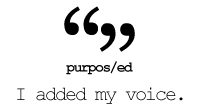I was unable to participate in MOOC MOOC yesterday as I had a full day visiting with family. While I managed to fit in some reading in the evening, I didn’t have the time to complete the task. Therefore, I got up early this morning, finished writing a post reflecting on Day Two, and then began work on Day Three’s activity.
We were given a video to watch and then asked to make our own, responding to the question: ‘Where does learning happen?’
I enjoyed the task as it gave me the opportunity to share a number of ideas that I have been ruminating on for several months now; influenced by the focus of my research proposal for the M.Ed I am studying towards.
I don’t feel too bad about not being able to participate fully yesterday, as I feel MOOCs are as much about plotting your own path as they are about networks and collaboration. I hope to get involved in a discussion about participant pedagogy today, as that is what we have been tasked with, but I will just see what the day brings. I have collated a number of articles about connectivism and my immediate plan is to sit and read those next. The learning is messy but I am managing to create order from the chaos.
